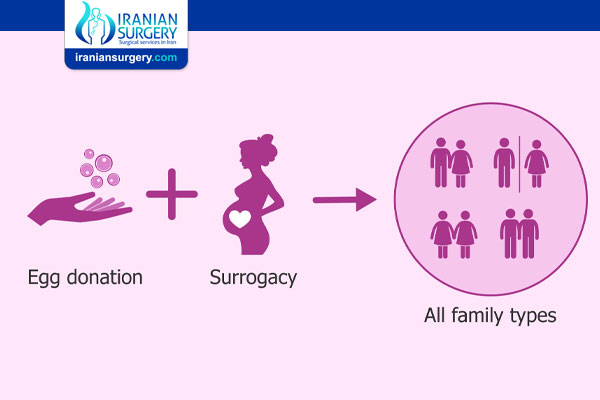Difference Between Egg Donor and Surrogate
Difference Between Egg Donor and Surrogate
Are you considering using an egg donor or a surrogate to help you become a parent? It’s a complicated decision to make, which is why it’s so important that every intended parent in this situation fully understand both of their options before moving forward. Only then can you choose the path that is truly the best one for your family.
This article will help you better understand the differences between egg donation and surrogacy, and what situations might call for working with one or the other (or both). You can always contact our surrogacy specialists for more information about what the gestational surrogacy process will look like for you.
What is Egg Donation?
Egg donors are carefully screened women who are willing to share information about themselves with intended parents — and eventually share genetic material, as well. Egg donors are healthy, often educated and have no family history of genetic conditions. Some intended parents like to choose an egg donor who has particular personality traits or physical characteristics that they wish to see in a child.
An egg donor would provide half of a child’s genetics, so most intended parents choose their egg donor carefully through a trusted fertility clinic or donor agency. Sometimes intended parents choose someone that they know to be their egg donor, like a friend or family member.
Viable eggs are surgically collected from a donor. Then, they can be fertilized in a lab through in vitro fertilization (IVF) using sperm from either a donor or an intended father. Next, the resulting embryo is transferred to the uterus of either a surrogate or an intended mother to carry.
Who Might Consider Using an Egg Donor?
There are several people who might choose to build their family through an egg donation:
. A woman who is unable to produce viable eggs but who has sperm from an intended father or a donor, and is physically able to carry the pregnancy to term herself.
. A same-sex male couple who is working with a gestational surrogate to carry their baby.
. A single man who is working with a gestational surrogate to carry his baby.
In many situations, an egg donor is used in tandem with a surrogate. Typically, the only situation in which someone would exclusively use an egg donor and not a surrogate is when the intended mother’s eggs are not viable, but she is able to carry a baby safely to term.
In those instances, an embryo would be created in a lab through IVF using the donor egg and sperm from either the intended father or from a donor, and then the embryo would be transferred to the intended mother’s uterus. In most situations, however, the created embryo is transferred to a gestational surrogate.
What is Surrogacy?
Surrogates are carefully screened women who are able to carry a pregnancy to term and safely give birth. Intended parents partner with surrogates they trust through surrogacy agencies, or with a woman they already know who has offered to carry the child. Intended parents and surrogates communicate directly and typically form a relationship throughout the process.
In gestational surrogacy, the surrogate’s eggs are not used, so she would not be related to the child she carries for the intended parents.
Instead, an embryo is transferred to the uterus of a gestational surrogate for her to carry to term. That embryo can be created in a lab through IVF using donated eggs and/or sperm, egg and/or sperm from intended parents, or a combination of a donor and an intended parent.
Who Might Consider Using a Surrogate?
Anyone who is unable to safely carry or deliver a child themselves for any reason will likely use a surrogate. However, the people who most commonly work with a surrogate include:
. A woman who is unable to carry a pregnancy herself but has viable eggs to use.
. A same-sex male couple who are using a donor egg.
. A single man who is using a donor egg.
Often, egg and/or sperm donors are used in tandem with a surrogate. Heterosexual couples who have viable eggs and sperm will usually not need to work with an egg or sperm donor and will only work with a surrogate.
Most Intended Parents Will Work with Both
In most situations, donors (for sperm, an egg or both) and surrogates are both needed to help the intended parent(s) have a child. However, there are a couple situations in which you could choose to work with only an egg donor or only a surrogate:
. If you’re a heterosexual couple with viable eggs and sperm, then you likely won’t need to use a donor.
. If you’re a woman who is able to safely and successfully carry a pregnancy to term, then you likely won’t need to use a surrogate.
In almost every other situation, you’ll need to work with a donor (either for an egg or sperm) as well as a surrogate.
About Iranian Surgery
Iranian surgery is an online medical tourism platform where you can find the best doctors and fertility specialists in Iran. The price of IVF in Iran can vary according to each individual’s case and will be determined by an in-person assessment with the doctor.
For more information about the cost of IVF in Iran and to schedule an appointment in advance, you can contact Iranian Surgery consultants via WhatsApp number 0098 901 929 0946. This service is completely free.
Source:
https://www.americansurrogacy.com/blog/choosing-between-egg-donation-and-surrogacy-whats-right-for-you/


